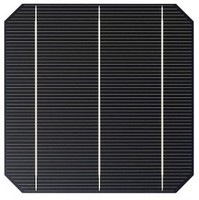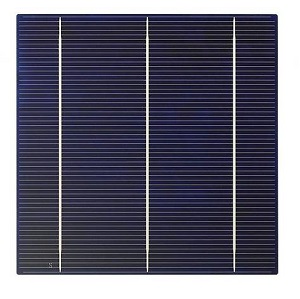 Loading... Please wait...
Loading... Please wait...Products
- Solar Panels
- Solar Panel Kits
- Solar Generators
- Inverters
- Inverter Monitoring
- Inverter Accessories
- Balance of Systems
- Racking and Mounting
- Rails
- Flashings
- Splice Kits
- Stopper Sleeves
- Conduit Mounts
- Attachments
- Brace Assembly
- Base Mount
- Brackets
- Bolts
- Clamps
- Caps
- L-Feet
- Washers
- Skirt
- Lugs
- Tilt Legs
- Hooks
- Stand-Offs
- Ballast Bay
- Top of Pole Mount
- Side of Pole Mount
- Flush Mount Kits
- Ground Mount Kits
- Roof Mount Kits
- Hardware Packages
- Wire Management
- Batteries
- Battery Accessories
- Charge Controllers
- Tools and Supplies
- View All Products
Solaris Blog - poly solar panels
What is the difference between Poly and Mono Solar Panels?
Posted by Brandi Casey on 11th Jun 2015
There are a number of factors a homeowner needs to consider before beginning the transition into solar power. Choosing between the two types of solar cells is no exception. While the difference between polycrystalline and monocrystalline solar cells is not vast, it is important for you to understand the difference and how the different types of solar panels will fit your individual needs.

Monocrystalline panels, commonly referred to as Mono, are easy to recognize due to their solid coloring which comes from the use of high-purity silicon. In order to optimize performance, monocrystalline panels are made out of single silicon ingots that are cut perfectly rectangular. Due to the fact that mono solar panels are made from the highest grade silicon, they typically have higher efficiency ratings when compared to poly solar panels. Another factor to take into consideration is that due to the higher power outputs, and tend to perform better in low-light conditions.
There are a couple of disadvantages of using mono solar panels, the first of which is that they will typically cost more than poly panels. This is not always the case as you may need fewer monocrystalline solar panels to obtain your energy goals. Mono panels also work better in hot conditions over cold conditions.

Polycrystalline panels are are simpler to make and therefore cost less to produce. Manufacturers are therefore able to offer poly solar panels at lower cost. Polycrystalline panels perform slightly less than mono panels at high temperatures, however the difference is minor and homeowners do not typically take it into account.
Overall both mono and poly panels have a lot to offer homeowners. It is important to take into consideration which panel you would like, basing the determination off of your budget, roof space and climate. When choosing between the two types of panels, be sure to look into the solar panel manufacturers themselves. SolarWorld offers mono panels which are high quality and backed by a 25 year performance warranty, Canadian Solar offers high quality poly panels which we also recommend. There are a number of solar panel manufactures who meet or exceed expectations for all solar panel tests. Check out specification sheets to gain a better understanding of what your panel can do for you.



